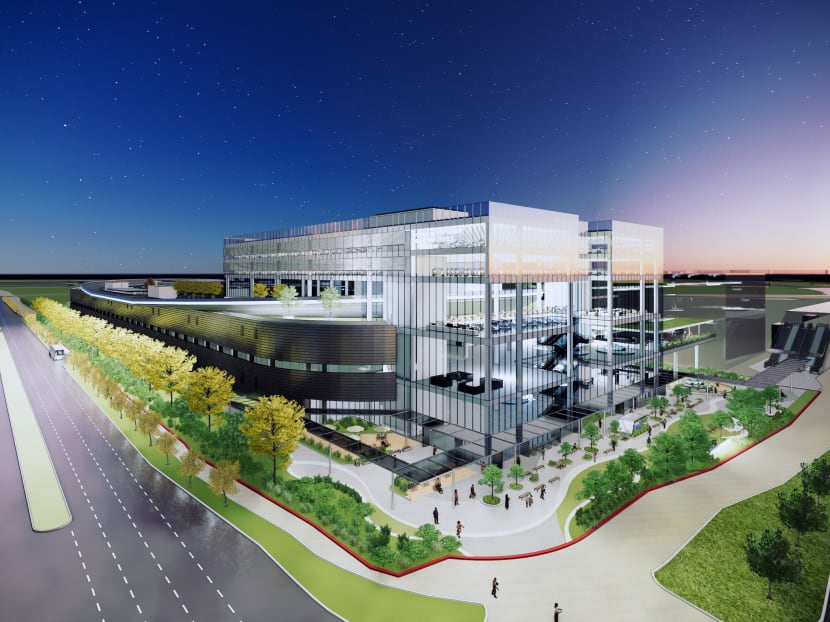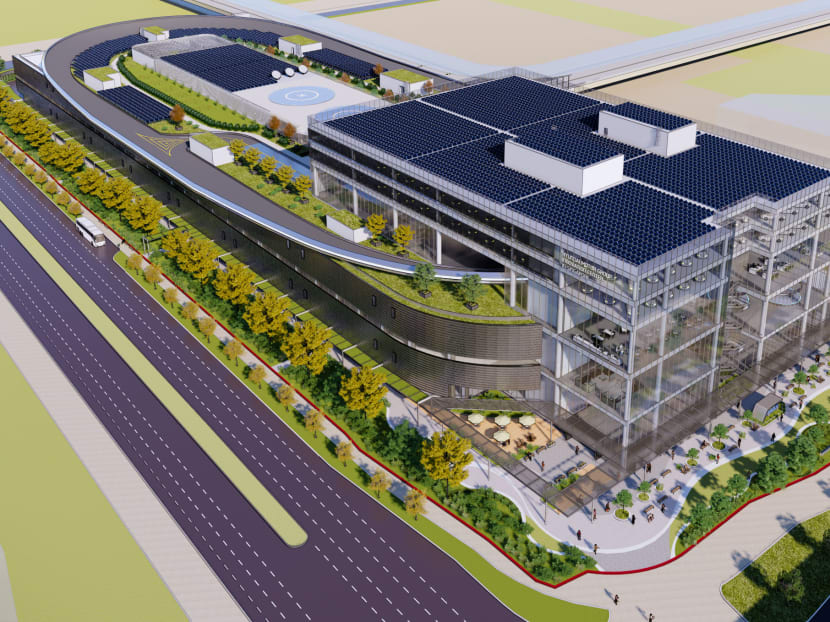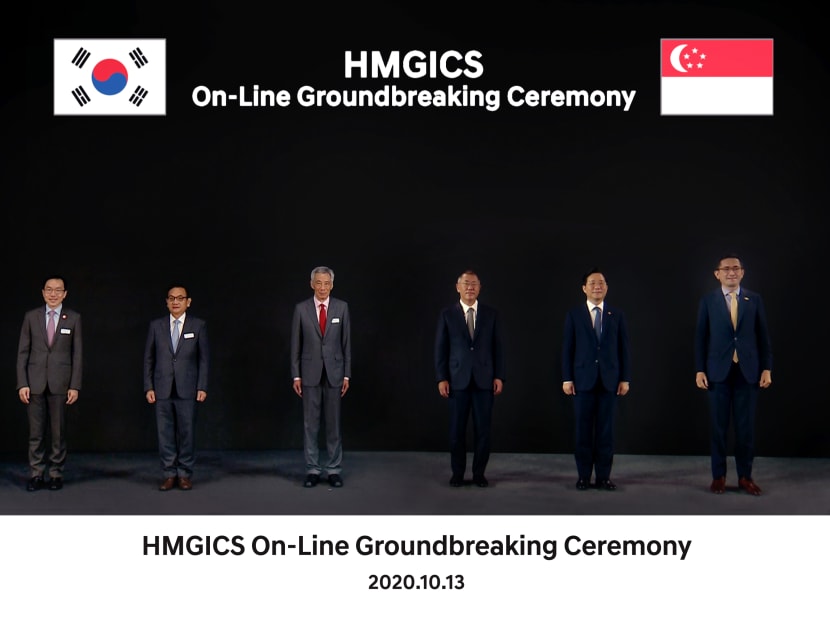Construction of Hyundai's electric car manufacturing plant in Singapore begins
SINGAPORE — Work has begun on South Korean conglomerate Hyundai’s 28,000 sqm innovation centre which will house an electric vehicle factory along with facilities for the research and development of automotive technologies.

Hyundai Motor Group celebrated the groundbreaking announcement of the Hyundai Motor Group Innovation Center in Singapore with a virtual ceremony on October 13, 2020.
- The 28,000 sqm plant costs S$400 million and will be located in Jurong Innovation District
- Customers will be able to customise and purchase vehicles online, test drive them on a sky track on the top floor of the facility
- Prime Minister Lee Hsien Loong said at the groundbreaking ceremony that the facility takes advantage of Singapore’s strengths in advanced manufacturing and logistics
SINGAPORE — Work has begun on South Korean conglomerate Hyundai’s 28,000 sqm innovation centre which will house an electric vehicle factory along with facilities for the research and development of automotive technologies.
The company’s choice of Singapore — the first time they have chosen a country which does not have a car manufacturing industry — comes as the Republic is moving towards its goal of having all vehicles run on cleaner energy by 2040.
Sited in the Jurong Innovation District, the facility, known as the Hyundai Motor Group Innovation Centre (HMGICS), will cost almost S$400 million and may produce 30,000 vehicles every year by 2025.
Construction is expected to be completed by the end of 2022.
In a media release on Tuesday (Oct 13), Hyundai said that customers will be able to customise their vehicles and purchase them online.
The factory will immediately start to manufacture an order once it is sent in and customers can watch the manufacturing process at the plant.
Once the car is ready for delivery, it will be transferred to a sky track at the top of the facility where customers can test drive their purchase, said Hyundai.
The company had said earlier that it plans to sell 5,000 to 6,000 of the cars here and export the rest.
Hyundai has also invested in a joint venture, Motional, which carries out research and development and autonomous vehicle trials in Singapore.

Prime Minister Lee Hsien Loong, speaking at the groundbreaking ceremony on Tuesday, said that Singapore had announced plans earlier this year to catalyse electric vehicle (EV) demand and build supporting infrastructure including charging points ahead of demand.
“Now we are taking another step to anchor the value chain here with HMGICS as the first EV manufacturing facility in Singapore,” he said.
He recounted how Singapore was “no stranger” to car production having housed car assembly plants run by Ford and Mercedes Benz from the 1940s to 1980.
Eventually however production technologies changed and car assembly on a small scale became no longer economically viable and Singapore pivoted to other manufacturing activities.
Forty years on, however, the automotive market has evolved.
“We are seeing growing interest in cleaner, smarter vehicles. Cities around the world are also facing pressure to move people around more efficiently, and in an environmentally sustainable manner,” said Mr Lee.
Given that electric vehicles have a different supply chain, fewer mechanical parts and more electronics than traditional cars, these play to the city-state’s strengths making automotive activities viable in Singapore once again, he said.
“Siting the facility here takes advantage of Singapore’s strengths, for example in advanced manufacturing and logistics,” he added.
In 2018, household appliance maker Dyson announced plans to build its first electric car and roll them out by 2021 in Singapore but the project was axed barely a year later.

Mr Lee said he hopes the opening of Hyundai’s manufacturing plant will open new growth areas of Singapore’s economy, and create jobs for locals, such as Internet of Things engineers, data, scientists and digital supply chain strategists.
“Young Singaporeans may not have these skills in the first instance, but they will learn from the engineers that you bring here from Korea and elsewhere in the world, as we did in the past. And over time, I am confident that we will build up a Singaporean workforce with these skills,” he said.
The factory was also an important milestone for the economic relationship between Singapore and South Korea and will pave the way for more Korean companies to invest here, partner with local suppliers and collaborate with local educational institutions, he added.
For example, Hyundai is already working with Nanyang Technological University and research institute A*Star to see how artificial intelligence can be utilised in autonomous driving.








